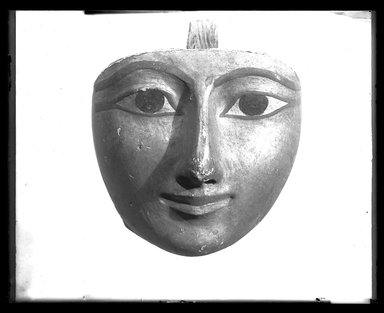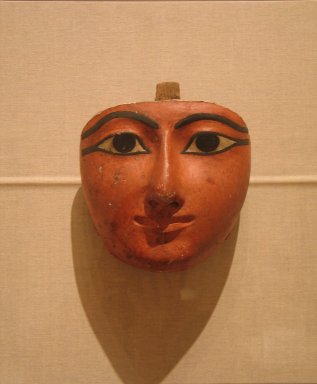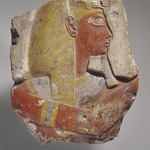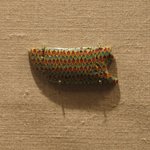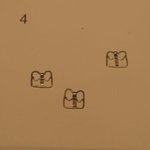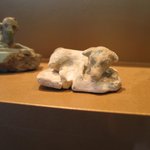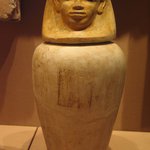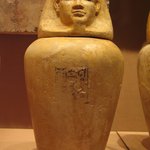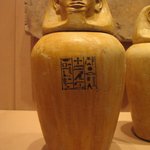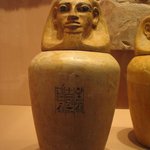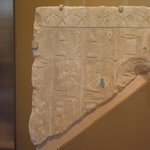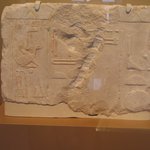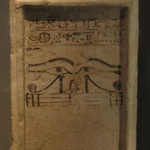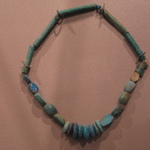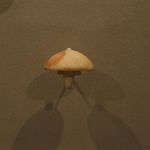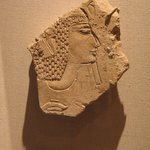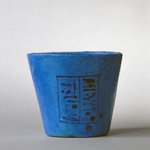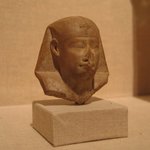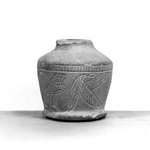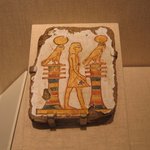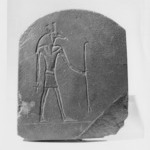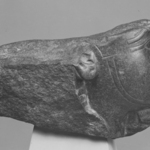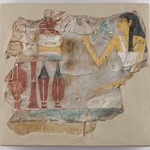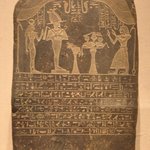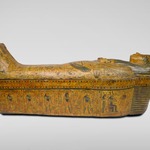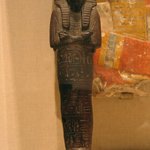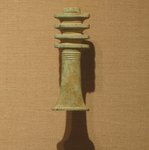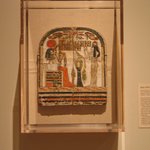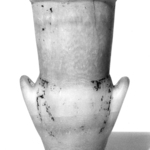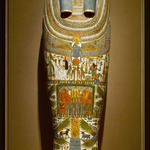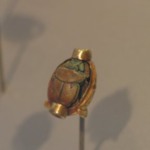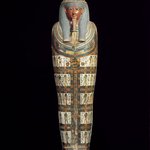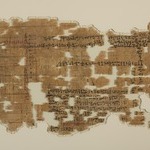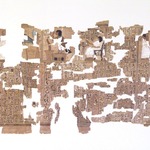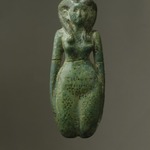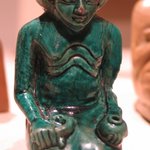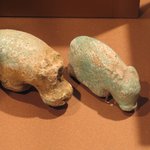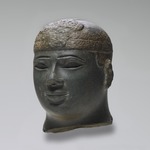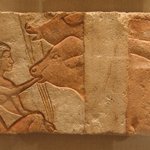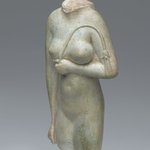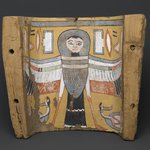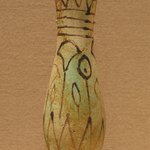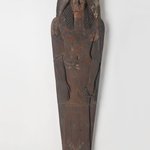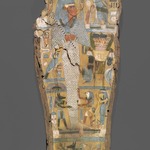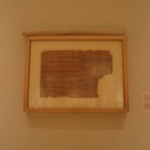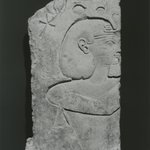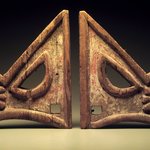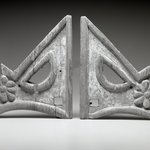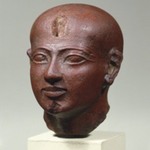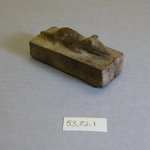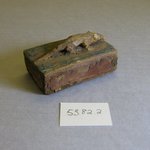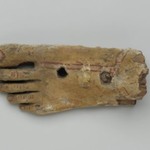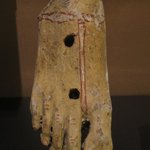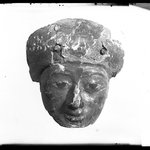Face from an Anthropoid Coffin
Egyptian, Classical, Ancient Near Eastern Art
On View: 19th Dynasty to Roman Period, Martha A. and Robert S. Rubin Gallery, 3rd Floor
This face from a coffin is treated in a manner called "hieroglyphic." Its features are like individual hieroglyphs and are not totally integrated into the face by means of organic modeling.
The piece is dated to Dynasty XXI and attributed to Thebes because it resembles very closely many faces on coffins of that time and place. The face's shape and features reflect the revival of the artistic style of the earlier part of Dynasty XVIII (circa 1539–1390 B.C.) or early Dynasty XIX (circa 1295–1250 B.C.), some of whose art was influenced by the art of early Dynasty XVIII.
MEDIUM
Wood, gesso, pigment
DATES
ca. 1070–945 B.C.E.
DYNASTY
Dynasty 22
PERIOD
Third Intermediate Period
DIMENSIONS
8 7/16 x 8 1/16 x 4 5/16 in. (21.5 x 20.5 x 11 cm)
(show scale)
ACCESSION NUMBER
37.2037E
CREDIT LINE
Charles Edwin Wilbour Fund
CATALOGUE DESCRIPTION
The object is part of the composite head from a coffin. Made of wood, it was covered with gesso and then painted. The red pigment of the face is still in excellent condition as are the black and white pigments used for the eyes. Some surface damage has occurred to the lower part of the tip of the nose. Wooden tenon projects from the top of the head which at one time fit into a socket on the wig which was fashioned separately.
CAPTION
Face from an Anthropoid Coffin, ca. 1070–945 B.C.E. Wood, gesso, pigment, 8 7/16 x 8 1/16 x 4 5/16 in. (21.5 x 20.5 x 11 cm). Brooklyn Museum, Charles Edwin Wilbour Fund, 37.2037E. Creative Commons-BY (Photo: Brooklyn Museum, 37.2037E_NegA_SL4.jpg)
IMAGE
overall, unedited master file, 37.2037E_NegA_SL4.jpg. Brooklyn Museum photograph
"CUR" at the beginning of an image file name means that the image was created by a curatorial staff member. These study images may be digital point-and-shoot photographs, when we don\'t yet have high-quality studio photography, or they may be scans of older negatives, slides, or photographic prints, providing historical documentation of the object.
RIGHTS STATEMENT
Creative Commons-BY
You may download and use Brooklyn Museum images of this three-dimensional work in accordance with a
Creative Commons license. Fair use, as understood under the United States Copyright Act, may also apply.
Please include caption information from this page and credit the Brooklyn Museum. If you need a high resolution file, please fill out our online
application form (charges apply).
For further information about copyright, we recommend resources at the
United States Library of Congress,
Cornell University,
Copyright and Cultural Institutions: Guidelines for U.S. Libraries, Archives, and Museums, and
Copyright Watch.
For more information about the Museum's rights project, including how rights types are assigned, please see our
blog posts on copyright.
If you have any information regarding this work and rights to it, please contact
copyright@brooklynmuseum.org.
RECORD COMPLETENESS
Not every record you will find here is complete. More information is available for some works than for others, and some entries have been updated more recently. Records are frequently reviewed and revised, and
we welcome any additional information you might have.
Was the face on the coffin more significant? Is that why it was sculpted separately?
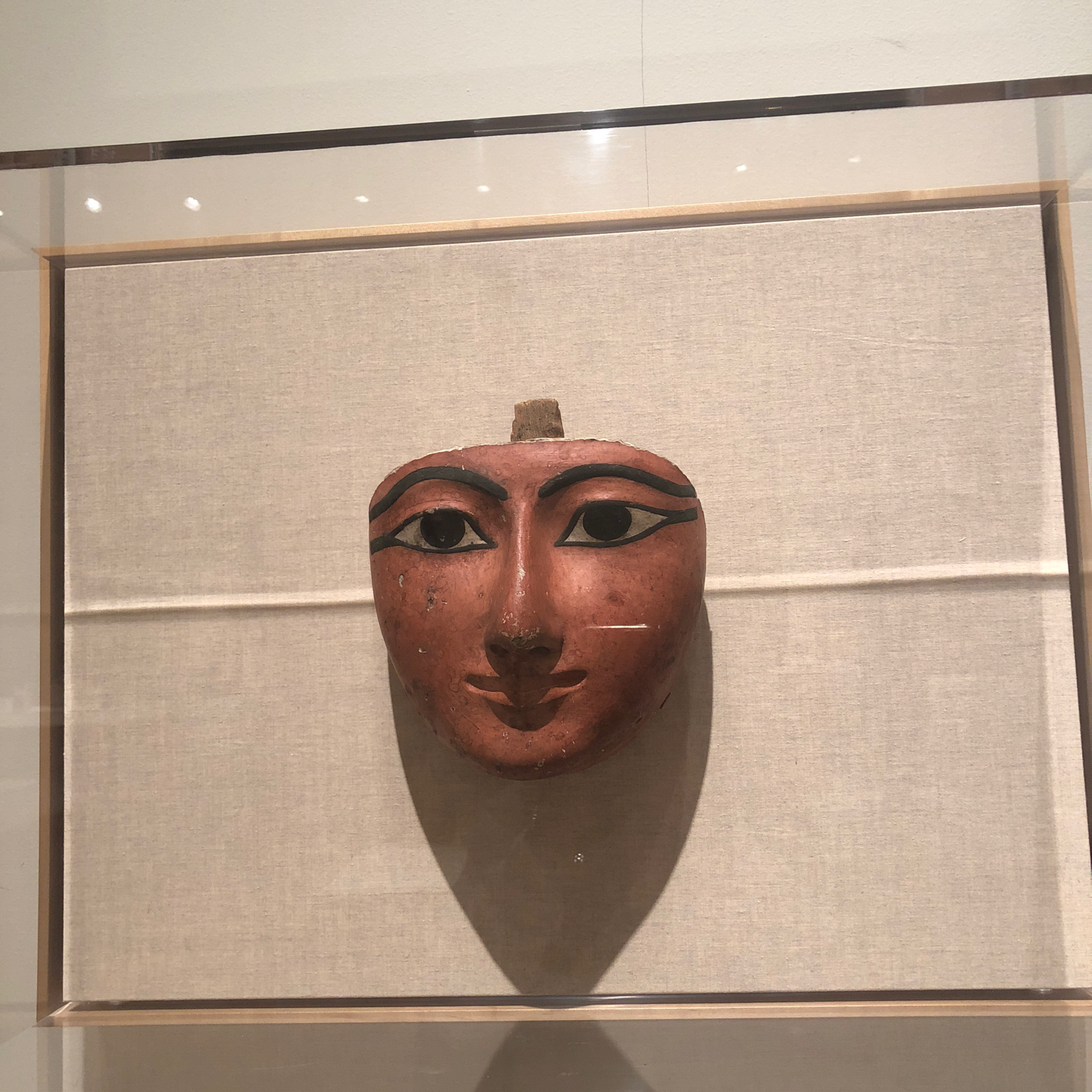
An anthropoid, or human-shaped, coffin like the one this face comes from would have been sculpted in multiple parts because wood was rare and expensive in ancient Egypt.
Large pieces were especially difficult to acquire.
Did you notice the tongue of wood sticking out above the eyes? That's one of the tenon's craftsman used to attach this piece to the rest of the coffin.
